It’s illegal to sell or distribute cannabis in Malawi, though the law is more ambiguous regarding its usage. Drug trafficking and illegal cultivation are both big problems in the country, as impoverished farmers grow cannabis to boost their finances. The country’s government is starting to see the economic benefits that growing hemp may offer.
- Capital
- Lilongwe
- Population
- 23,277,000
- CBD Products
- not clear
- Recreational cannabis
- Illegal
- Medicinal cannabis
- Illegal
- Cannabis laws in Malawi
- Can you possess and use cannabis in Malawi?
- Can you sell cannabis in Malawi?
- Can you grow cannabis in Malawi?
- Is CBD legal in Malawi?
- Can cannabis seeds be sent to Malawi?
- Medicinal cannabis in Malawi
- Industrial hemp in Malawi
- Good to know
- Cannabis history
- Attitudes to cannabis
- An international player?
- Malawi Gold: Malawi’s landrace strain
- Malawi Cob: A traditional method to use Malawi Gold
- Will cannabis be legalised in the future?
Cannabis laws in Malawi
Can you possess and use cannabis in Malawi?
The law is somewhat ambiguous regarding the use or possession of cannabis in Malawi. The Dangerous Drugs Act states that “The Minister may by regulation: prohibit, control or restrict the production or possession” of cannabis. In reality, though, the authorities spend more time trying to stop drug trafficking than drug usage.
As such, cannabis is widely used across the country, and arrests for possession are relatively uncommon.
Can you sell cannabis in Malawi?
It’s illegal to sell or distribute cannabis in Malawi. This wasn’t the case before 1961. However, after signing the UN Single Convention on Narcotic Drugs, traffickers have become subject to penalties, such as prison sentences. Despite this fact, smuggling cannabis is still fairly commonplace.
After a government crackdown in 2000, seizures of cannabis decreased. The situation has fluctuated since 2004. For example, in 2008, 25 tonnes of cannabis were seized; the following year it was just 1.4 tonnes. It’s unsurprising that this poverty-stricken country has issues with cannabis trafficking; it produces the largest amount of cannabis in southern Africa (the and is third largest producer in the continent) and the prospect of generating money is a powerful motivator.
Malawi is constantly subject to international pressure regarding its trafficking activities. For example, the 2000 crackdowns were a direct result of criticism received from other countries in the Southern Africa Development Committee.
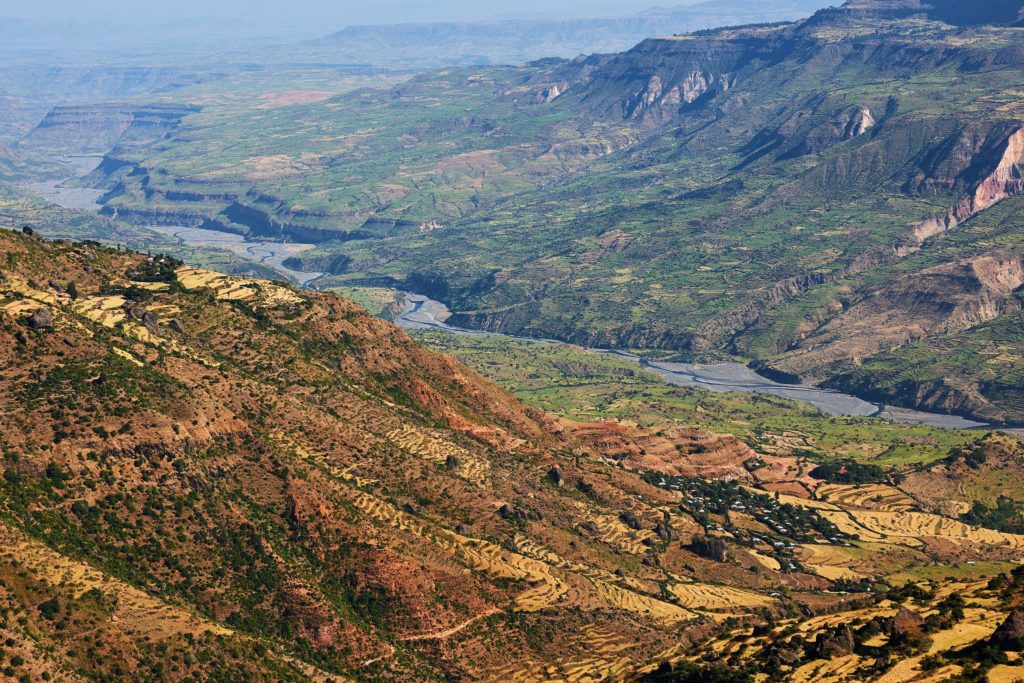
Can you grow cannabis in Malawi?
Malawi’s law forbids the cultivation of cannabis or hemp. Despite this, plantations are fairly common, and cannabis growth is the main illegal drugs-related activity in the country.
This is largely because so much of Malawi’s land is ideal for cultivation. The warm, humid lowlands of the Great Rift Valley provide fertile soil for growth, as do the temperate uplands that surround it. Due to the fact that many of the country’s people live in poverty, the potential to make money from growing it is almost irresistible.
The principle areas of cultivation in Malawi are:
- The Nkhotakota region
- The Likwawa Hills (Mzimba district)
- Ntchisi
- Kasungu Ntcheu
- Dedza
Generally speaking, the women take responsibility for the production and processing of the cannabis, and the men are responsible for its sale and trafficking.
Is CBD legal in Malawi?
In the Dangerous Drugs Act, it’s written that “the fixed oil obtained from the seed” of Indian hemp (cannabis) is exempt from the laws governing the plant. However, this terminology is ambiguous.
The Malawi government has given certain companies licences to cultivate cannabis to be made into CBD oil, then sold to an international market.
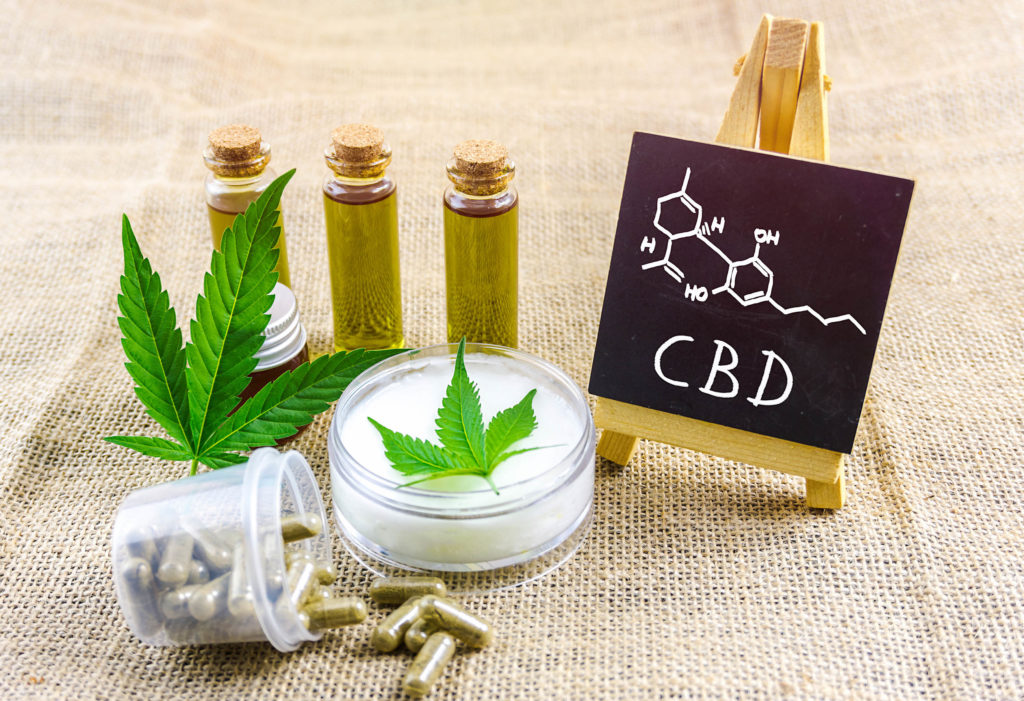
Can cannabis seeds be sent to Malawi?
The Dangerous Drugs Act states that cannabis seeds are illegal, unless the seed has been “crushed, comminuted or otherwise processed in such a manner as to prevent germination.” However, given that most cannabis seeds purchased online haven’t been processed to stop them from germinating, this means you cannot mail them into the country.
Medicinal cannabis in Malawi
Until recently, Malawi didn’t have a medicinal cannabis programme. However, in February 2020, the government passed a bill, decriminalising the cultivation of cannabis for medicinal purposes.
The decision was largely driven by economic potential, rather than health benefits. As much of the country is suitable for cannabis cultivation, the government have increasingly become aware of the huge profit-making potential of legalising the crop.
Boniface Kadzamira, an ex-MP, commented: “It is my strong view that cannabis will in the long run replace tobacco to become our major cash crop – that will contribute hugely to the GDP.”
Industrial hemp in Malawi
Malawi’s government is slowly adjusting their attitudes to industrial hemp. Invegrow was the first company to be granted a licence to conduct research trials on industrial hemp.
Since then, other investors have approached the government with a view to grow industrial hemp in the country. In 2018, Green Quest Pharmaceuticals stated that they were searching for 50,000 hectares of land on which to cultivate hemp for clothing and medicine, among other things. Graham Macintosh, an investor in the company, commented: “Everyone should be allowed to grow cannabis without any legal impingements, from a small one hectare to 101 hectares of land.”
He also added that hemp had the potential to take over tobacco as the largest forex earner; and pointed out that cannabis was a $7billion investment worldwide. This figure was anticipated to grow to $10 billion by 2019.
Throughout 2020, Malawi’s tobacco production fell by approximately 31.3%, resulting in a 26.4% decline in the countries tobacco revenue.
In February, 2020, a bill was finally passed, fully legalising the cultivation of industrial hemp. As with medicinal cannabis, this decision was largely based on the positive impact hemp is likely to have on the economy.
Since November 2020, Malawi’s Cannabis Regulatory Authority has issued 86 licenses to 35 companies for industrial hemp production.
Good to know
If you are travelling to Malawi (or currently live there), you may be interested to know the following:
- Malawi cannabis is regarded by many as some of the best quality in the world.
- Although numbers of cannabis seizures fluctuate significantly each year, experts agree that there is a well-established substantial export market in the country. It’s thought that it’s one of the continent’s largest producers of herbal cannabis; along with Lesotho, Mozambique, South Africa and Tanzania.
Cannabis history
Experts think that cannabis has been grown in Africa for centuries. The first evidence dates back to 14th century Ethiopia; where archaeologists discovered two smoking pipes, complete with traces of the drug. It’s believed that cannabis then made its way south with the migration of the nomadic Bantu people, finally reaching Malawi. However, other experts speculate that it may have been introduced into the country via Arab or Portuguese traders.
When British colonists arrived in Malawi in the mid-19th century, they found that cannabis use was already widespread; with people consuming it for medicinal and recreational purposes. Livingstone observed local people cultivating and using it in 1865.
Malawi cannabis is also woven into many of the myths and legends of the country. One of the more modern ones (albeit tongue-in-cheek) is that once tourists sample Malawi Gold, they suddenly lose all desire to return to their home country!
Attitudes to cannabis
Cannabis use is widespread across the country, and is largely used socially and recreationally. Malawian Rastafarians also use it for spiritual reasons, and claim that police corruption is the reason for its continued prohibition.
Although it is widely used in Malawi, the police are still cracking down on cannabis; particularly its cultivation and trafficking. This is a concern to some cannabis aficionados, who worry that further eradication efforts could adversely impact genetic diversity.
Malawi has a strong cannabis tourism industry. This began back in the 1970s, when visitors on safari in the Great Rift Valley stopped at Lake Malawi. Here, they sampled the locally grown cannabis, then when they returned home, they excitedly told their friends.
In the 21st century, tourists continue to flock to the country to try the famous Malawi Gold, which in turn, has driven Malawians to make improvements to the infrastructure, in a bid to cash in on this economic opportunity.
An international player?
Malawi is one of the most significant producers of herbal cannabis, and it exports to several other African countries; in addition to Europe and other locations. In fact, cannabis is believed to be the country’s third largest export, making up one of the three ‘C’s: ‘chamba’, ‘chombe’ and ‘chambo’ (cannabis, tea and tilapia fish).
Neighbouring nations like Zimbabwe, Mozambique and Zambia rely on Malawi for imported cannabis, as their domestic production doesn’t fulfil local demand.
The authorities have attempted to address the issue; though often, illegal cannabis cultivators simply relocate to other places; particularly in the mountainous regions, which are remote and hard to reach.
Malawi Gold: Malawi’s landrace strain
Cannabis has been growing in Malawi for centuries; and during that time, various varieties were bred together; both naturally and by human intervention. Eventually, one landrace emerged as dominant – the Malawi Gold.
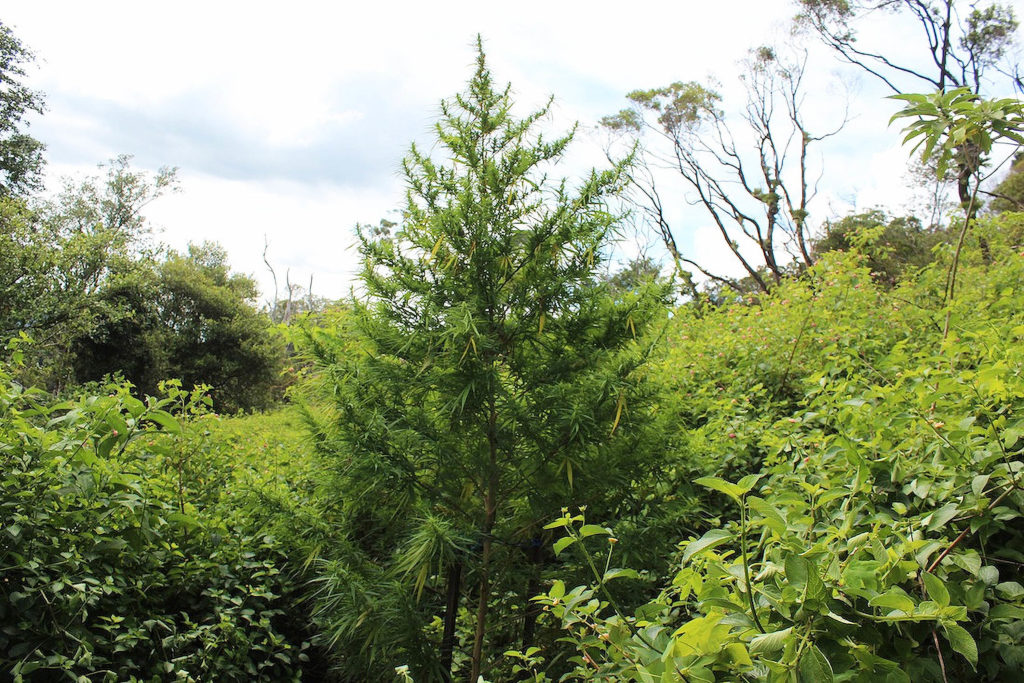
Malawi Gold, which is one of the world’s most well-known landraces, is very stable. There are actually several phenotypes of this landrace, but the differences are largely superficial. However, some are defined as ‘woody’ (taller and more ‘stretched’ in appearance) and others are ‘fruity’ (shorter and bushier).
The variety is a pure sativa, with slim, bright green leaves, and long colas that are heavily coated with trichomes. The flowering period is long, at around 17 to 18 weeks.
This local cannabis is valued across the world for its clear, cerebral high and its sweet, floral flavour.
Malawi Cob: A traditional method to use Malawi Gold
After harvesting, the plants are trimmed and left under the sun to dry. Then, they’re tied into a ‘cob’, which is wrapped in maize or banana leaves. This ensures that they’re ready to be transported and sold.
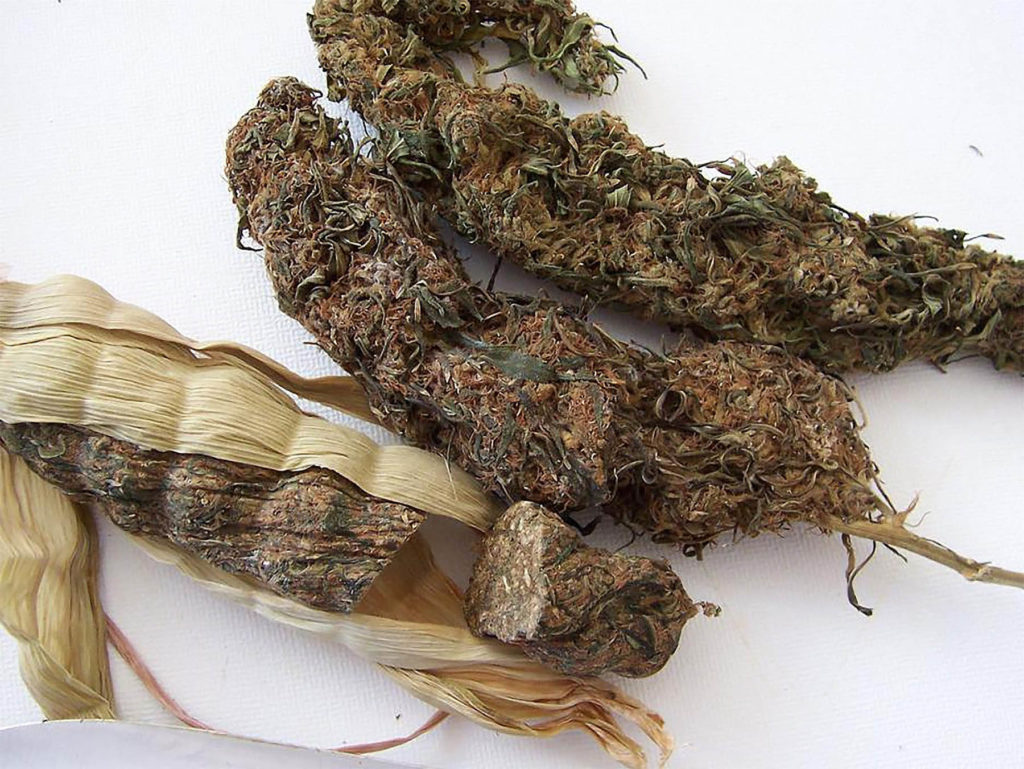
Sometimes, the cannabis is wrapped into a cob while still moist. These cobs are then wrapped in goatskin (or manure or soil) and buried underground for several months. This creates an altered cannabinoid profile, and gives them an unusual black colour. These cobs, rather than being called Malawi Gold, are known as Malawi Black (or Black Magic), and they produce a more psychedelic effect.
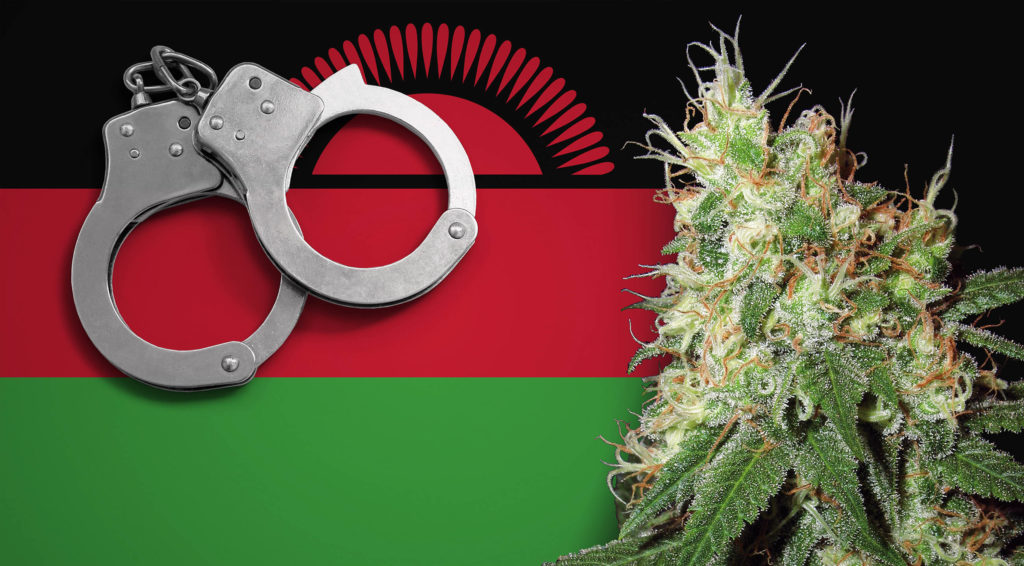
Will cannabis be legalised in the future?
Malawi’s government has expressed interest in exploring the industrial hemp and medicinal cannabis markets; and at present this seems to be more driven by economic potential, rather than medical benefit.
With other African countries like South Africa decriminalising cannabis use, there is a possibility that Malawi may do the same; though its government has not expressed any intention to do so as yet.
- Disclaimer:While every effort has been made to ensure the accuracy of this article, it is not intended to provide legal advice, as individual situations will differ and should be discussed with an expert and/or lawyer.







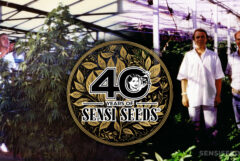




Chamba should be legalized… those who want it should get it, those who don’t want it shouldn`t use it, not just favouring one side. Why is it that cigarettes are allowed? Free up the Sensi!! Big up to all the Sensi Seed crew… nuff love and respect from Malawi,,,, lawyers are very much needed here in Malawi to shake up the courts who criminalize Chamba.
I’m trying to find out Malawi Gold’s cannabinoid profile to see if it possesses THCV, anyone out there verify if it does?
I hear it has THCV…
How is THCV checked in Cannabis?
no need to prohibit marijuana farming in Africa generally since most cultures use this “sacred” weed for their cultural activities take for instance in our African traditional religion the spirit mediums may smoke cannabis first before communicating with our ancestors hence banning use of this weed is actually an abuse of our own constitution which considers freedom of religion as a human right .Needless to say , cannabis farming is likely to boost these African economies by far especially in the case of my country ,Zimbabwe whose economy is teetering on the verge of collapse ..Thank you ED and our government for thinking differently and supporting growth and farming of cannabis .
Smoke,eat ,drink,or just looking at it we all get what we can from Marijuana.
Marijuana,was planted by the creators for our own food. Eat itsmoke it wlth no fear or faviur,only mobsters say its bad. Thanks,im coming to malawi to taste that sweet chamba and no one can stop me.
This is really a great article,but its sad that weed is illegal in Malawi when it is playing a crucial role in the tourism sector..chamba should be legalized
the way you have described it like “its
clear, cerebral high and delicate sweet flavour” can make one’s mouth watering.
i am ashamed to see that a foreigner knows alot about my country than i do.
What a babe you are Sheshatha.. and what an lovely article..!
Very rare article to be found on the net on this topic. I support the growth of Cannabis for industrial use: This is a Malawi’s gold. Its sad that countries such as USA who have championed the international moral and legal stance that cannabis is bad and should be banned is now legalizing its production, marketing and use. This is unfair in the sense that while they are making economic benefits from the stuff which poor countries such as Malawi have been told not to legalize.
Take note that I do not support smoking marijuana at all, i do believe any sort of smoking is ant-human, the body wasn’t designed to inhale CO2 as a habit
I am part of the Malawian hemp farmer and I would like to encourage my fell Malawian to get not afraid to engage into the business hence the only way to improve the social standard level is through replacing the planting of hemp fre barley which had difficulties at the market, however, the Government of Malawi should consider the feeling of its people, hence the fear to increase the criminal cases due to hemp I don’t think can be related to the establishment of business, but this is so because people are failing to access secure job through which implementing the program could have improved the current situation. Me am going to grow 9 hectares of hemp where am going to grade as demanded by different buyer, hence they are looking for seed, stalk and the leaves which is different from barley tobacco.
I would like to know more about the licences mainly in Malawi, May you please Educate me about the processes and how to get the permit as you did?
one other thing of my interest is the market or demand